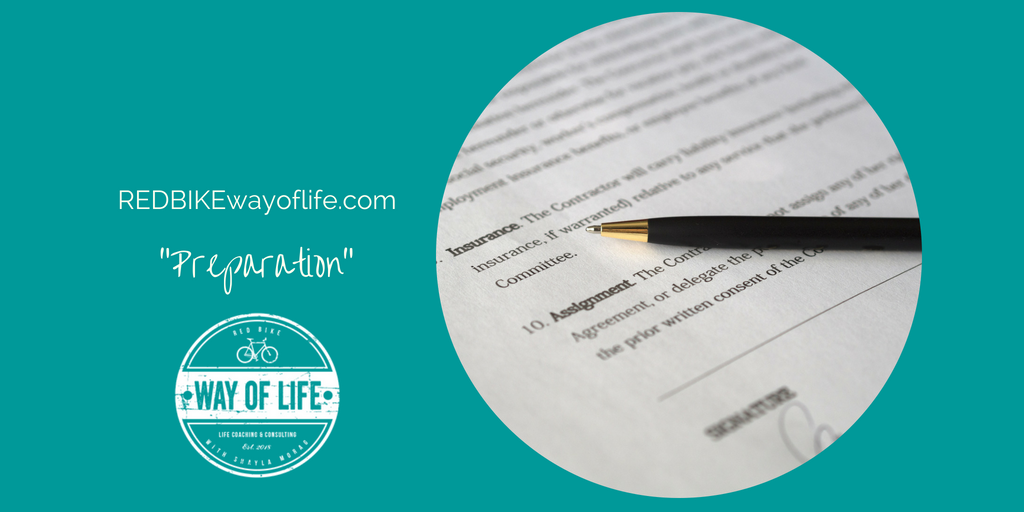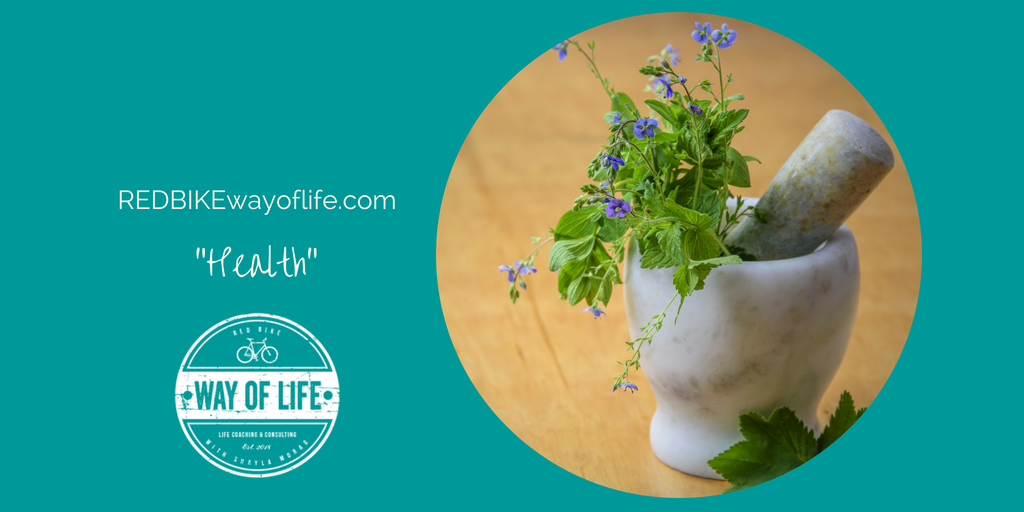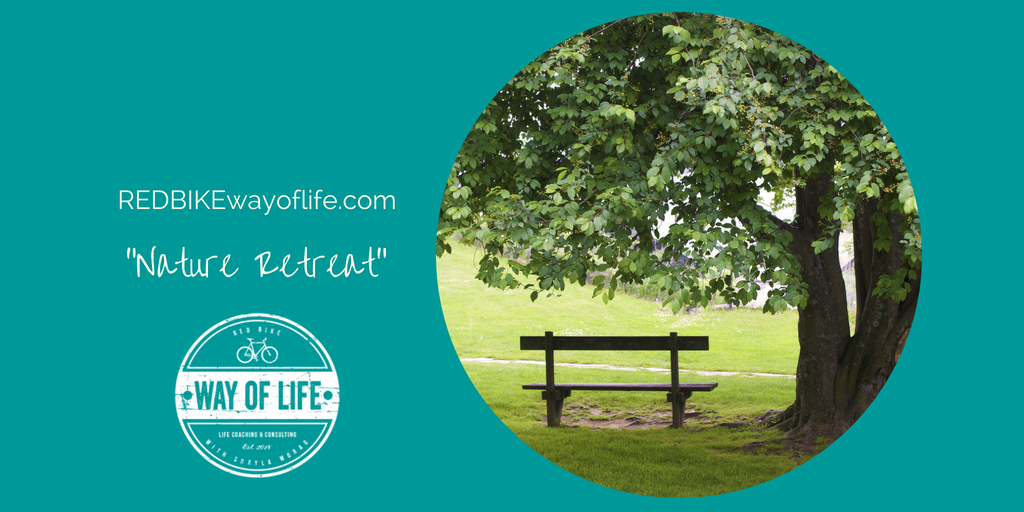
by Shayla Morag | Oct 29, 2018 | Change, Grief, Handy Tips, Self-Compassion, The Red Bike Way
You’ve thrown your hands up in the air and declared that something must change. Suffer a major loss? You’re ready for a fresh start. While your current situation may be challenging, the intention of making a fresh start is a good sign. It’s much better than giving up!
What do you need to change? Is it just one area of your life or do you need a complete makeover?
You can make a fresh start in any area of your life:
1. Home. Consider giving your living arrangement a makeover. You could move to a new home or change your existing home. Move the furniture or purchase new furniture. Paint the walls a new color. Convert a spare room into a room with a purpose. It could be dedicated to music, arts and crafts, or meditation.
2. Finances. Create a budget. Work a second job. Talk to a financial advisor. Find a job with a higher salary. Address your debt. Plan for your retirement. Look at your current financial challenges and finally address them with a detailed, step-by-step plan you can stick to.
3. Social life. It’s time to say goodbye to the people in your life that drag you down and replace them with those that provide a boost to your life. Meet some new friends and try a few new social activities. Work on your dating skills and catch the partner of your dreams.
4. Health and body. Hire a personal trainer and join a gym. Find a diet that works for you. Address any health issues you might have. Visit the doctor and the dentist. Try a new sport.
5. Career. Ask for a raise or change jobs. Grab your career by the horns and learn new skills that will make a difference. Consider going back to school.
6. Belief structure. Investigate a new religion or philosophy. Learn how to meditate. Question your beliefs and find a purpose. Read a good book each month and apply what you learn.
These are just a few ideas. You can also address your current relationships, attitude, or fears. It isn’t necessary to change everything at once. In fact, addressing one area at a time will yield better results.

by Shayla Morag | Jun 19, 2018 | Caregiving, Grief, Preparation, The Red Bike Way
When the Power of Attorney (POA) documents are in place for your loved one, it is really wise to make several ‘validated’ copies and scan them for future use. This document becomes extremely important as the years go by. You will need to send it to government departments, insurance companies, and banking institutions so that you can act on your loved ones behalf. Without the POA on file, you will not be able to request, change, or update information. Be proactive as it will save a lot of time and frustration.

by Shayla Morag | Jun 04, 2018 | Grief, Health, Self Care, Self-Compassion, The Red Bike Way
Working through grief and loss, it is importance to maintain our physical health but mental and emotional health are just as critical. Exercise prevention whenever possible. Mental and emotional health issues can be very debilitating and challenging to treat.
Place a premium on your mental and emotional well being:
1. Spend time with others socially. Your mental and emotional health won’t be optimal if you split all of your time between work and home. Spend some time in the company of others. Wednesday afternoon staff meetings don’t count! Humans are social beings and social interaction is a component of good mental health.
2. Train your brain. Keep your brain active and healthy. Buy a book of crossword puzzles or brainteasers. Play chess or learn a musical instrument. One of the best ways to preserve your brain health is to challenge it each day.
3. Take time for yourself. Between work, family, and maintaining a home, it can be challenging to find personal time. Nevertheless, spend a little time each day doing something that you enjoy. Even if it’s just sitting alone on your deck with a cup of coffee in the morning. Social activity is important. A little solitude is important, too.
4. Spend time with positive people. Your thoughts, attitudes, and expectations mirror those of the people around you. By spending time with positive people, you’ll be more positive, too. Whom do you spend time with now
5. Find a job that you enjoy. Besides sleep, you spend more time working than you do on any other single activity. If your job makes you miserable, your emotional health is sure to suffer. Money isn’t everything. Consider finding a career that you enjoy. You’ll be happier and more positive about the future.
6. Share your time and yourself with your community. This is also a great social activity. You feel better about yourself and increase your sense of self-worth when you help others. There are plenty of opportunities to volunteer. Investigate a few and make a decision.
7. Spend more time doing things you love to do. What makes you happy? Spend more time doing it. Do you love golf? Build a weekly round of golf into your schedule. How can you not be happier if you spend more time doing things that make you happy?
8. Get sufficient sleep. Sleep is necessary for good health, both physical and mental. Those that lose the ability to sleep due to accident or illness die within several weeks. Your ability to manage stress, make smart decisions, and regulate your emotions are dependent on getting enough sleep.
9. Have a compelling future. For your emotional health to be at its best, you need something to look forward to. It might be a date on Saturday night, a vacation, or retiring. It doesn’t matter what it is, but you need something in the future that makes you smile when you think of it.
Give you mental health as much attention as you do your physical health. Strive to live a well-rounded life filled with enjoyable activities and people. Get enough sleep and find constructive ways to deal with stress. With good mental health, you’ll be able to handle any challenge that life throws at you.
Remember to get professional help if you’re unable to maintain good mental health. You wouldn’t attempt to treat a physical disease by yourself. Put as much importance on your mental health. Avail yourself of expert assistance if necessary.

by Shayla Morag | May 22, 2018 | Change, Comfort, Grief, Mindfulness, Self Care, Self-Compassion, Stress Management, The Red Bike Way
The complications and ups and downs of modern life can leave you feeling stressed and lonely, but the solution is sometimes surprisingly simple. A recent study found that visiting a park for at least 30 minutes a week significantly reduces the risk of depression. Scientists in Australia found further evidence of what researchers have been saying for years. Connecting with nature enhances your physical, mental, and social well being.
If you want to help prevent depression, check out these handy tips. You’ll find ideas for making the most of your local park, and discover other ways to commune with nature.
Benefits of Parks and Other Natural Settings
1. Increase your happiness. Whether it’s a spectacular waterfall or a simple flower bed, we appreciate the beauty and order in our surroundings.
2. Boost your health. Spending time in parks has been shown to lower high blood pressure and reduce the risk of hypertension and heart disease. Being outdoors can also help you lose weight and sleep well if it increases your physical activity and exposure to morning light.
3. Socialize more. Parks bring together citizens from different walks of life. Whether you’re people watching or flying a kite, you share a positive experience.
Ideas for Using Your Local Park
1. Work out. Today’s parks often offer much more than jogging trails. Look for circuit training stations, softball fields, and tennis courts. Exercise requires less effort when you’re admiring the scenery.
2. Eat lunch. Squeeze a break into your busy schedule by eating lunch outdoors. Packing a bag lunch usually cuts costs and calories compared to most restaurants.
3. Attend events. Check the calendar on your park’s website. You may find free concerts, movies, and family events.
4. Pause to think. Find a comfortable place to sit and breathe.
5. Clean up. Now that you realize how much your park does for you, you may want to give something back. Join volunteer programs that pick up garbage, plant trees, or conduct tours for school children.
More Tips for Enjoying Nature
1. Take a walk. What can you do if there’s no park nearby? Stroll around the neighborhood or a local college campus.
2. Plan your vacation. Go camping or incorporate outdoor activities into any vacation. You can rent bikes or kayaks. Breakfast on the beach or go horseback riding in the mountains.
3. Tend your garden. Growing your own food and flowers is a great way to increase your gratitude for the earth. Plant tomatoes in your back yard or share a community plot.
4. Go for a dip. While green spaces provide impressive benefits, blue spaces may be even more powerful. Spend some time near water. Install a fountain in your back yard or ask a hotel if you can purchase a pool membership. Some facilities offer discounts for local residents.
5. Bring your pet. Observing wild animals is entertaining and educational as long as you take reasonable safety precautions. If you want to interact more closely, walk your dog or play Frisbee together.
6. Gaze at stars. Learn about science the fun way while you stimulate your sense of wonder. Shop for a basic telescope or check the calendar for public programs at community observatories.
7. Redecorate your home. For rainy days, invite the outdoors in. Arrange your furniture so you sit by a window with a view. Set out fresh flowers or pretty seashells.
Talk with your doctor if you’re experiencing symptoms of depression that interfere with your daily life. Otherwise, increasing your exposure to green and blue spaces may be all you need to lift your spirits and stay fit.

by Shayla Morag | Apr 21, 2018 | Emotional Intelligence, Grief, Mindfulness, Self Care, The Red Bike Way
Finding inner peace in the modern world is a significant challenge especially after experiencing loss and grief. Everything about modern society feels like an obstacle to experiencing peace of mind. But there are ways to find and maintain inner peace. Inner peace is a choice, and many of your habits determine how much peace you experience in your daily life.
Experience these 9 calming strategies that help find inner peace and enjoy life on a deeper, more satisfying level:
1. Focus your attention on those things you can control. Why worry about those things you can’t control? It sours your mood and makes you less capable. Literally ask yourself, “Is this something I can control? Will worrying be beneficial in any way?”
2. Spend time in nature. The original humans didn’t live in a 3-bedroom ranch and eat microwave popcorn. Take a long walk in the park or spend a weekend camping. You’ll feel dramatically different compared to sitting in a building 24 hours every day. There’s something peaceful about spending time among the birds and the trees.
3. Be true to yourself. Few things are more disconcerting than living a life you weren’t meant to live. It continuously gnaws away at you. Live a life that’s congruent with your values. It’s too easy to allow society dictate your choices. You don’t have to spend your life on a career that’s impressive to others. You don’t have to chase after a fancy house. Make your own decisions about what’s most important to you.
4. Eat nutritiously.You might not realize how bad you feel because you’re so used to it. Try eating the way you know you should for just a week. Note the change in how you feel. Now try eating some junk food and see what happens to your mood and your overall sense of well-being. You’ll feel like you’ve been run over by truck.
5. Exercise regularly. Have you ever noticed how great you feel as you’re walking out of the gym? Exercise feels good, and you feel good about yourself for doing it.
6. Do something nice for someone else. This is a great way to take your focus off of yourself. You become more aware that others are struggling, too. When you are kind, you receive kindness in return. You’ll also feel a sense of pride and satisfaction when you help someone else.
7. Be assertive. Be open and forward with your needs and desires. You’re not only more likely to get what you want, but you’ll also feel more in control of your life. Being passive results in having less control, which runs counter to inner peace. Be bold without being aggressive.
8. Meditate. Meditation is calming. It also helps to see life and its challenges more accurately. Things are often better than they seem. Meditation can prevent your mind from making a situation seem worse than it really is.
9. Avoid trying to change others. You’ll have as much success trying to change the weather. It’s hard enough to change yourself. How will you ever manage to change someone else?
It’s important to take care of yourself mentally and physically. Eat properly, exercise, and be true to yourself. Be assertive and take control of your life. All the accomplishments in the world can’t replace inner peace. Avoid chasing after those things that society has determined to be important. Decide for yourself and live the life you were meant to live.

by Shayla Morag | Apr 13, 2018 | Comfort, Creativity, Grief, Music, The Red Bike Way
It can be very helpful to write down our feelings, emotions, and reflections throughout the cycles of grief. It can give perspective, insights, and offer some resolve. Over the years, I have found writing music very therapeutic. I wrote my songs not really thinking of them being played on the radio as grief is a very personal journey. I have always been a believer that emotions will either get expressed, depressed, suppressed, or repressed. They often come out in other ways if not released and honored. Check out this sampling of some of my compositions based on my life experiences.







